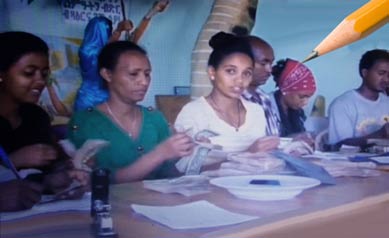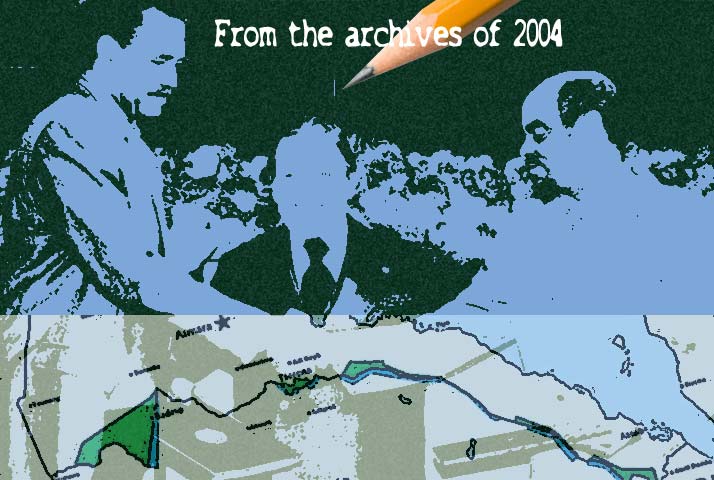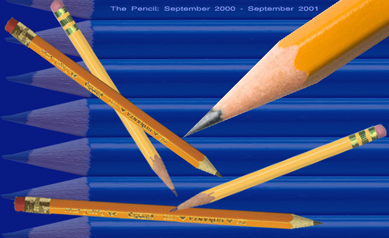The Pretend Tudor Monarch And His Banks

Since late last year when the Eritrean regime imposed tighter controls on the Nakfa currency, the already small Eritrean economy has shrunk, mainly due to shortage of cash in the market.
The acute shortage of cash in circulation has hit the retail business hard and drastically reduced its size—perishable products for instance, a kilogram of tomatoes that used to sell for 80 Nakfa a kilo before the government recalled all the cash in circulation, is now selling at 20 Nakfa.
Surprisingly, media sources affiliated to, or sympathetic with, the Eritrean ruling party have been crediting the decrease in the prices of perishable items to the “smart economic strategy that the government implemented to lower consumer prices.” However, the government’s role in the decrease of prices is the fact that it pulled a big chunk of the currency out of circulation.
Eritrean vendors who have no proper cooling and storage facilities have to dispose perishable items fast, at any price, before they rot and end up being thrown away. Vegetables and fruits that start selling at 100 Nakfa a kilo in the early morning end up selling at 25 Nakfa a kilo towards the evening.
Over the last three months, the currency drama has preoccupied Eritreans more than anything else. And though the process of the currency exchange supposedly ended a few weeks ago, Eritreans are still living with the disruption of the economy that the ambiguous decision to change the currency created. That has finally resulted in the government ending up controlling all the currency in the country. In addition, it has meticulously recorded how much each and every citizen owns and in the process, and it has greatly profited from the exchange of the currency.
Out of the estimated amount of 62 billion Nakfa worth of currency that was in circulation, only an estimated 75% has been surrendered to the banks. The rest is believed to have turned into valueless paper, and that translates into unjustly earned profits for the government of Eritrea. Unfortunately, in the absence of a free press, according to an observer the losing parties are, ”mainly poor people who have no understanding of how the PFDJ banking system and its other rackets operate,”. Needless to say, the totalitarian regime and the business elite of the ruling PFDJ party has already converted their money to US dollars and stashed the ill-acquired wealth in distant and safe places long before the government announced the changing of the currency.
The regime allows businesses to withdraw only 20,000 Nakfa monthly (roughly $400) from their accounts; the regime insists they can conduct limitless transactions through checks or other banking tools. However, those whose business is located in the countryside, or is mainly based on cash transactions, are almost out of business. A businessman who just left Eritrea for good stated, “Such meager cash cannot sustain a small corner-kiosk let alone a wholesale business.” But it is not only businesses that are complaining, individuals can only withdraw of 5,000 Nakfa monthly irrespective of their household sizes.
It is clear that the ill conceived, greedy, and politically motivated decision to change the currency has created a problem and has already ruined the livelihood of many citizens. The regime, however, claims it’s “smart financial policies will punish and limit the activities of corrupt individuals and businesses.” But so far, the entire population is being punished while the cats that the regime selectively fattened are not deterred . The regime has put the already shaky monopolized economy in a quagmire it is ill fit to navigate through.
Frantic movements to ameliorate the damage caused by the currency disaster that it created, the regime has subjected Eritreans to a barrage of proclamations, clarifications, additional explanations, and more clarification related to the change of currency. But each time, the legalistic sounding clarifications get worse and end up increasing the perpetual confusion. And in its latest bid to counter the widespread discontent and negative publicity, on Thursday, February 10, the PFDJ regime issued further clarifications in relation to the currency exchange.
According to the latest clarification, anyone has the right to pay by check, and there is dire consequences for those who refuse to accept a check: penalties, jail terms, and cancellation of business license. And to lead by example, the regime decided that all its service and public institutions will deal only through checks, no hard cash—could that curtail corruption?
Acting like parents who consider it is their responsibility to safe-keep their child’s piggy-bank, the Eritrean regime decided to keep the wealth of supposedly free citizens. Anyone who keeps cash amounts of more than 3000 Nakfa would be committing a serious crime! There was a chilling clarification: Usually, all cash should be deposited and withdrawn from banks, but in case that individuals and business are found keeping huge amounts of cash, they would be held responsible by “the law and face the legal ramifications.”
Indeed, the main announced reason for the change of the currency and its forced depositing in banks was to decrease the use of paper currency and make transaction through other banking instruments like checks. It was alleged it was to promote the use of banking transaction other than cash, but never to control or limit commercial and personal transactions as there is no limit to the transaction amounts carried out by using checks. So, if they want to avoid the wrath of the regime, Eritreans have to begin using checks in their financial transactions.
However, the culture and practice of using checks is not something you enforce by proclamations. Imagine a person in a remote Eritrean location in need of buying a bull to slaughter for a wedding party, and the animal costs about 7000 Nakfa, over twice the maximum legal transaction the regime allows the citizens to conduct in cash. Worse, neither the buyer nor the seller can read or write. Such transactions are doomed unless the ruling party ventures into a new business of providing check-writers and readers in each village and hamlet across the country—and given its record of “financialization” of governance, no one would be surprised if it did.
At any rate, the ruling party seems to have already envisioned a solution: it proclaimed 100% literacy rate and so now it is so. It declared every Eritrean should use checks and they will, by hook or by crook, and for fear of serious repercussions: a threat of jail terms for refusing to accept or write a check! And of course, the clarification “clarified” that Forex business is still the monopoly of the regime, and a threat: “all exchange of hard currency can only be carried out by authorized, legal money changers, any exchange outside the legal entities results in a serious punishment.”
The best deal for Eritrea would be for the Eritrean tyrant to issue a proclamation to immediately end poverty, stop drought, and eradicate opposition to his injustices, and build a great wall of Eritrea around the country to further isolate it. With no parliament to stop him, the pretend-Tudor monarch can issue any proclamation he wishes!



Awate Forum